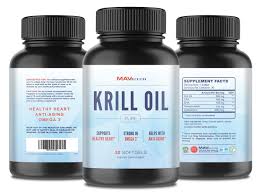
By now, you’ve undoubtedly heard nutritionists singing the praises of Omega-3s. But where should you be getting them from?
Fatty fish, such as tuna, have long been known to be rich sources of Omega-3. But now, new research has shown that krill (crustaceans that live at the bottom of the Antarctic ocean) also have very high levels of these healthy fatty acids. Not surprising, a thorny debate has quickly arisen over which sources are the best to consume for the best results.
Here’s what you need to know about Omega-3s, fish oil and the suddenly trending krill oil.
Health benefits of Omega-3 fatty acids
Omega-3 is a fatty acid that contains ALA, EPA and DHA, which help the body form cells and membranes, and cut inflammation. While the body has the ability to produce ALA on its own, DHA and EPA are only found in marine life, such as certain fish and krill. That means eating a diet rich in the right marine sources can results in a massive boost to your health and wellness.
Omega 3 serves the all-important function of fighting inflammation. Because inflammation has been linked to nearly all diseases (including the nation’s top killers, heart disease and cancer), this fatty acid’s ability to reduce or eliminate the root of many diseases can have massive health benefits. Some studies have shown that people who consume Omega-3-rich fish on a regular basis have a lower risks of coronary issues like heart failure, heart disease and death from heart disease.
While all the fatty acids of Omega-3 supplements have important health benefits, EPAs are particularly good at fighting off anxiety and depression. Studies have shown that those who exhibited symptoms of these mental disorders saw relief of symptoms and feelings with regular consumption of Omega-3.
DHA in Omega-3 has been shown to be helpful for improving vision and staving off eyesight problems, including macular degeneration, the primary driver of vision loss as we age. In pregnant women, DHA can enhance a child’s brain formation, and has been linked with higher intelligence, better communication and social skills, and decreased risk of problems like ADHD, autism and cerebral palsy.
The krill oil vs. fish oil debate
But where should you be getting your Omega-3s? Krill oil, the newest fish-oil alternative, has been trending as of late. Krill are similar to shrimp. And because they’re bottom feeders, they don’t have the same problem with mercury content that fish often do. They feed on phytoplankton rather than other fish and are harvested from the cleanest ocean around: the Antarctic. Therefore, they (and their Omega-3) are often considered purer than ones from fish.
Krill oil tends to have less of a fishy aftertaste than regular fish oil. It also appears to have greater bioavailability than fish oil, allowing the body to absorb up to 15 times more of the oil into the bloodstream. While more research is still needed to determine if krill’s benefits are truly better than fish, many people are already opting for krill oil over fish oil.
Omega-3 is also found in fatty fish like herring, tuna and sardines. And while both krill and fish oil have been shown to be equally good at increasing Omega-3 levels in the blood, one study suggested that it takes nearly double the amount of krill oil to amount to the recommended dosage of fish oil.
Fish oil (and fish oil supplements) has been the traditional means of consuming your daily Omega-3s. And because, in this case, less is more, some people still prefer fish oil to krill.
And the winner is…
While both fish oil and krill oil contain high levels of EPA and DHA (which fight everything from cholesterol and arthritis to inflammation and a host of other health issues and skin problems) krill oil’s purity and bioavailability may make it come out on top. However, many studies conducted thus far have been inconsistent, and further studies are still needed to prove any other benefits of the one over the other. But whether you opt for krill or fish oil, you’ll see great benefits to your overall wellness.
However, it’s important to note that both fish oil and krill oil may result in things like bad breath, offensive smelling sweat, upset stomach and heartburn. But with the high health benefits, you might be willing to let this slide.
Comprehensive wellness is based on eating a diet rich in a variety of nutrients. But many of our diets tend to be more nutrient-depleted than anything. And some pharma medications can also deplete the body of certain nutrients. All things considered, supplementation is an important part of good health because it can provide the vitamins, minerals and dietary nutrition your body desperately needs but isn’t getting anywhere else.
But before you start a supplementation routine involving fish oil or krill oil, check with your doctor to make sure you avoid negative interactions with health conditions or medications. If your doctor okays these supplements, check out real, honest reviews of top-rated dietary supplements like krill oil to find the one that’s best for you.
I’m not just a supplement analyst. I’m an extremely qualified one! I am a Certified Nutrition Coach (CNC) and actually received my certification directly from the National Academy of Sports Medicine. I am also a Nutrition & Wellness Consultant, certified by the American Fitness Professionals Association (AFPA).

